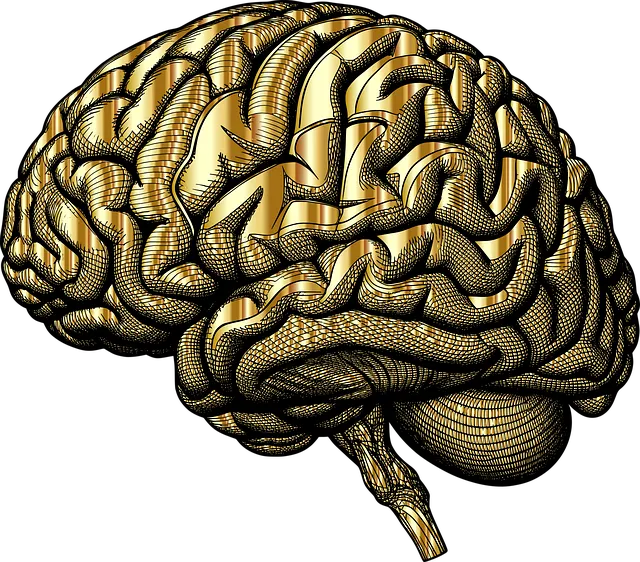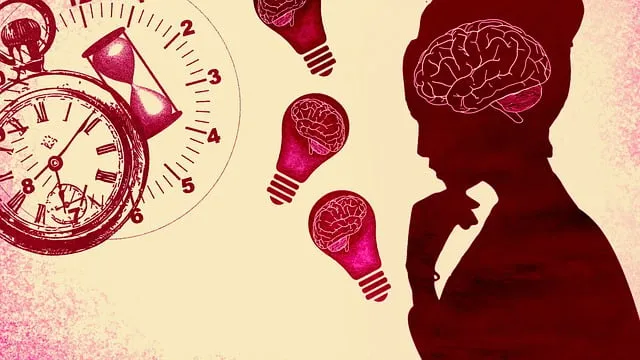Lafayette Kaiser Permanente behavioral health services reviews highlight innovative strategies for enhancing mental health diagnosis accuracy. Through education programs, Compassion Cultivation Practices, burnout prevention, stigma reduction, and community outreach, they empower individuals to recognize symptoms early and provide tailored, evidence-based treatments. Their patient-centric approach, combining Mind Over Matter principles, refined communication, and continuous quality improvement, leads to improved outcomes, reflecting the organization's commitment to exceptional care as seen in their reviews.
Mental illness diagnosis accuracy is a critical aspect of effective mental healthcare, yet remains a challenging area. This article explores efforts to improve diagnostic precision, focusing on the innovative practices of Lafayette Kaiser Permanente Behavioral Health Services. We delve into common misconceptions and challenges, and present strategies like advanced assessment tools and patient-centric approaches. By examining real-world examples, including Lafayette Kaiser Permanente behavioral health services reviews, we highlight how these improvements can lead to better outcomes for individuals navigating mental health issues.
- Understanding the Importance of Diagnosis Accuracy in Mental Health Care
- The Role of Lafayette Kaiser Permanente Behavioral Health Services
- Common Challenges and Misconceptions in Mental Illness Diagnosis
- Innovative Strategies to Enhance Diagnostic Accuracy
- Patient-Centric Approaches and Continuous Quality Improvement
Understanding the Importance of Diagnosis Accuracy in Mental Health Care

Diagnosis accuracy is a cornerstone of effective mental health care. The ability to accurately identify and understand an individual’s mental illness is crucial for delivering tailored and appropriate treatment. Inaccurate or late diagnoses can lead to prolonged suffering, mismanaged symptoms, and even increased stigma, hindering patients’ emotional well-being promotion techniques and self-awareness exercises. Organizations like Lafayette Kaiser Permanente behavioral health services reviews highlight the growing emphasis on precision in mental health diagnosis.
Mental health education programs design plays a pivotal role in enhancing diagnostic accuracy. By educating both healthcare providers and the public about various mental health conditions, these programs empower individuals to recognize symptoms early and seek help without delay. Through evidence-based practices, regular training, and staying abreast of the latest research, professionals can ensure they are equipped to make informed decisions, leading to more effective interventions and improved patient outcomes.
The Role of Lafayette Kaiser Permanente Behavioral Health Services

Lafayette Kaiser Permanente Behavioral Health Services stands as a beacon of hope and accurate diagnosis in the realm of mental health care. Their commitment to Compassion Cultivation Practices has fostered an environment where patients feel understood, valued, and supported. Through innovative approaches, the team aims to enhance the accuracy of mental illness diagnoses by integrating evidence-based methods with human empathy.
The organization’s reviews consistently highlight their Burnout Prevention Strategies for Healthcare Providers, which are designed to ensure professionals remain resilient in the face of challenging cases. By addressing the Mental Illness Stigma Reduction Efforts, Lafayette Kaiser Permanente Behavioral Health Services not only improves patient outcomes but also creates a more inclusive and supportive community for those struggling with mental health issues.
Common Challenges and Misconceptions in Mental Illness Diagnosis

Mental illness diagnosis is a complex process fraught with challenges. One of the primary hurdles is the multifaceted nature of human emotions and behaviors, which often overlap with various disorders. Professionals at Lafayette Kaiser Permanente behavioral health services reviews highlight that many individuals present with symptoms that are not immediately indicative of a specific mental health condition, making accurate diagnosis an art as much as a science. This complexity is exacerbated by cultural and societal misconceptions surrounding mental illness, leading to misdiagnosis or delayed treatment.
Furthermore, the emotional healing processes vary greatly from person to person, and anxiety relief is often sought through diverse means. Community outreach program implementation has proven effective in addressing these challenges by raising awareness, destigmatizing mental health issues, and providing accessible resources. Such initiatives play a crucial role in ensuring that individuals receive the appropriate care for their unique needs, fostering an environment conducive to holistic well-being and recovery.
Innovative Strategies to Enhance Diagnostic Accuracy

In the realm of mental health care, improving diagnostic accuracy is a vital task. Lafayette Kaiser Permanente behavioral health services reviews highlight innovative strategies that have emerged to enhance this process. One such approach is the integration of Mind Over Matter Principles, which focus on empowering individuals with coping mechanisms and self-awareness techniques. By fostering resilience and emotional intelligence, these principles enable patients to actively participate in their treatment, leading to more precise diagnoses.
Additionally, Compassion Cultivation Practices play a significant role in improving diagnostic accuracy. These practices encourage healthcare providers to cultivate empathy and understanding, creating a safe and non-judgmental environment for patients to express their experiences. Effective communication facilitated by these strategies allows for deeper insights into symptoms, personal histories, and cultural contexts, thereby enhancing the overall diagnostic process. Furthermore, Communication Strategies are being refined to bridge the gap between patient narratives and clinical assessments, ensuring that every piece of relevant information is accurately captured and considered.
Patient-Centric Approaches and Continuous Quality Improvement

At Lafayette Kaiser Permanente behavioral health services, a patient-centric approach is revolutionizing diagnosis accuracy. By prioritizing individual experiences and needs, healthcare providers are better equipped to understand complex mental health presentations. This shift fosters open communication, encouraging patients to share detailed accounts of their symptoms, struggles, and strengths. Integrating this patient perspective into assessment processes enhances the reliability of diagnoses and ensures tailored treatment plans.
Continuous quality improvement (CQI) further strengthens diagnostic accuracy efforts. Regular review of patient outcomes and feedback mechanisms enable healthcare teams to identify areas for refinement. This proactive approach to learning from both successes and challenges drives evidence-based practice updates, addressing concerns like Mental Illness Stigma Reduction Efforts, Burnout Prevention, and Cultural Sensitivity in Mental Healthcare Practice. Through CQI, Lafayette Kaiser Permanente behavioral health services consistently refine their diagnostic protocols, ultimately improving patient care and outcomes.
Mental illness diagnosis accuracy is a critical aspect of patient care, and continuous improvement efforts are essential. As highlighted by Lafayette Kaiser Permanente Behavioral Health Services reviews, integrating innovative strategies, such as evidence-based assessment tools and patient-centric approaches, significantly enhances diagnostic accuracy. Overcoming common misconceptions and challenges ensures that patients receive timely, appropriate treatment, ultimately improving mental health outcomes. By fostering a culture of continuous quality improvement, healthcare providers can ensure they offer the best possible care to those facing mental illness.






